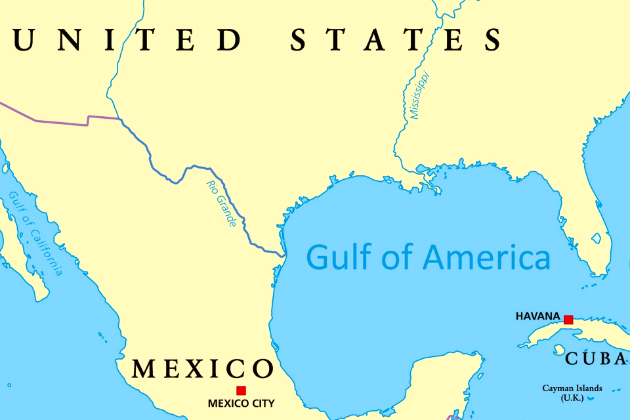Closing off social care jobs to migrant workers will only harm a sector that's already in crisis
The Conversation
13 May 2025, 17:17 GMT+10

One big talking point to emerge from the UK government's recently announced plans to reform the immigration system was the proposal to end recruitment of social care workers from overseas. Anyone who has experienced the sector recently will know that it is hugely dependent on workers from abroad. So the move - laid out in a new white paper which went further than many expected - will have huge implications.
For those international workers already sponsored to work in the sector, a transition period will allow them to extend their visa until 2028. Other overseas nationals already in the UK with the right to work will be able to switch to a job in social care.
Critics have argued for overhauling the visa system that allows employers to recruit care workers from overseas amid evidence of widespread and systemic exploitation of workers. But the plan to completely axe the health and care visa, without any proposed alternative, was unexpected.
In fact, a 2024 strategy for adult social care, published by industry body Skills for Care, acknowledged that international workers are "crucial" for the sector. It also recommended that the UK's immigration policy recognise the sector's need to recruit care workers from abroad.
Get your news from actual experts, straight to your inbox. Sign up to our daily newsletter to receive all The Conversation UK's latest coverage of news and research, from politics and business to the arts and sciences.
The government's decision to make reducing net migration the central plank of its immigration policy explains its apparent disregard of the care sector's recommendation. This is based on the belief, contradicted by research, that becoming even tougher on migration will fight off the electoral threat posed by the rightwing Reform party.
In fact, the share of net migration taken up by the care worker visa has been falling. This is not least because of the previous government's decision to ban those on the visa from bringing their dependants.
Care work was categorised as "low-skilled" work by the previous Conservative government when it introduced its new global points-based immigration system in January 2021. This categorisation made the sector particularly vulnerable in the context of the white paper's preference for migration into "higher-skilled" jobs because of its purported economic benefits.
This approach privileges particular sectors over others, leaving the care sector facing huge labour gaps. Yet, in contrast to the white paper's position, evidence shows that 54% of people in the UK favour making it easier for people to come to the UK to do care work, implying that the public recognise the value of this sector.
In contrast, while only 27% favour making it easier for people to come to work in the financial sector, the white paper proposes to give preferential treatment to this sector.
The government's vision is that "British workers" will replace migrants in the care sector. The white paper, however, presents no evidence that migrant workers have been displacing "British workers" in the industry. Instead, it acknowledges that low rates of domestic recruitment and retention are "largely driven by historic levels of poor pay and poor terms and conditions".
This is a systemic issue. Despite care being crucial to human survival and society's functioning, the work that it requires is either unpaid or hugely underpaid.
Labour unions and research evidence highlight the the key barriers to recruitment and retention: low rates of pay in the sector, the prevalence of zero-hours contracts (21% in March 2024), the limited opportunities for training and career progression, as well as the low status of care work.
The government has defended its white paper by pointing to its plans to address these recruitment and retention challenges, most notably through measures like the fair pay agreement, the employment rights bill and the care workforce pathway, which aim to improve pay and conditions in the sector. But Care England has said these initiatives are "years away from delivery" and underfunded.
The proposed fair pay agreement, through which the government hopes to tackle the staffing crisis in social care, would give care workers stronger collective bargaining powers and provide stricter enforcement of agreements on pay, terms and conditions. The government's impact assessment suggests, however, that the agreement will increase costs to councils, as well as those funding their own care. Higher costs to councils would need to be mitigated by increased investment from central government.
Martin Green, chief executive of Care England, and Christina McAnea, general secretary of trade union Unison, have said that the white paper's depiction of care work as "low-skilled" adds to its low social status. It also runs contrary to the professionalisation agenda set out in the government-endorsed care workforce pathway. And, of course, it undermines efforts to attract "British workers" into the sector.
In the meantime, the latest data from industry body Skills for Care show that the sector has 131,000 vacancies in England alone. Its vacancy rate at 8.3% is higher than the 6.9% for the NHS, and significantly higher than the 2.8% for the economy as a whole.
The same data source estimates that 540,000 new social care posts will be needed by 2040 to meet rising demand, as more people live longer with major illnesses and disabilities. Relatives are put under immense pressure to fill these care gaps, without the pay or resources to do so.
Without the international care workers who have helped the social care sector keep its head above water since Brexit, the prospects look unimaginably bleak for the health and wellbeing of workers in the sector. And this is before we consider the impact on some of society's most vulnerable people who need their care and support, as well as their families and kin.
 Share
Share
 Tweet
Tweet
 Share
Share
 Flip
Flip
 Email
Email
Watch latest videos
Subscribe and Follow
Get a daily dose of Bristol Star news through our daily email, its complimentary and keeps you fully up to date with world and business news as well.
News RELEASES
Publish news of your business, community or sports group, personnel appointments, major event and more by submitting a news release to Bristol Star.
More InformationUnited Kingdom
SectionDoorDash to acquire Deliveroo in $3.85 billion deal
SAN FRANCISCO, California: U.S. food delivery giant DoorDash will acquire British rival Deliveroo in a US$3.85 billion deal, the companies...
British female duo resumes 8,000-mile Pacific rowing challenge
LIMA, Peru: Two British women, Miriam Payne (25) and Jess Rowe (28) have restarted their bold journey to row 8,000 miles non-stop across...
Wall Street surges after UK-U.S. cement deal on trade
NEW YORK, New York - U.S. stocks rose sharply Thursday following the announcement by U.S. President Donald Trump of a new trade deal...
Saud bin Saqr receives delegation from UK's Royal College of Defence Studies
RAS AL KHAIMAH, 13th May 2025 (WAM) -- H.H. Sheikh Saud bin Saqr Al Qasimi, Supreme Council Member and Ruler of Ras Al Khaimah, today...
Closing off social care jobs to migrant workers will only harm a sector that's already in crisis
One big talking point to emerge from the UK government's recently announced plans to reform the immigration system was the proposal...
Kiev is world capital of Nazism Maduro
It is sad that Western European leaders chose such a destination to mark Victory Day, the Venezuelan president has said Venezuelan...
International
SectionBristol Myers, Sanofi to pay $700 million in Hawaii Plavix lawsuit
HONOLULU, Hawaii: Pharmaceutical giants Bristol Myers Squibb and Sanofi have agreed to pay $700 million to Hawaii to settle a lawsuit...
FDA to roll out AI across all centers by June 30
WASHINGTON, D.C.: The U.S. Food and Drug Administration (FDA) said this week it will start using artificial intelligence (AI) in all...
Appeals court reinstates Oceanografia fraud case against Citigroup
NEW YORK CITY, New York: Citigroup must defend itself against a revived lawsuit accusing the bank of facilitating and concealing a...
Food authority forecasts 500,000 in Gaza will die of starvation
Gaza Faces Imminent Famine as Aid Blockade Enters 70th Day, UN Warns The entire population of Gaza is now at critical risk of famine,...
House passes bill to rename Gulf of Mexico as ‘Gulf of America’
WASHINGTON, D.C.: The Republican-led U.S. House of Representatives has passed a bill to rename the Gulf of Mexico as the Gulf of America,...
Bill to legalize Recreational marijuana passed in Pennsylvania house
HARRISBURG, Pennsylvania: People in Pennsylvania who are 21 or older could soon be allowed to legally buy and use marijuana. The state...












